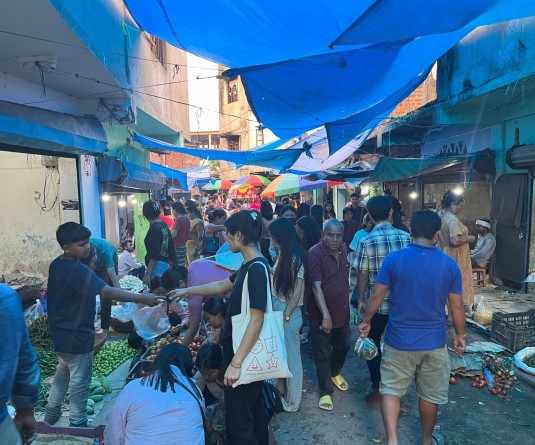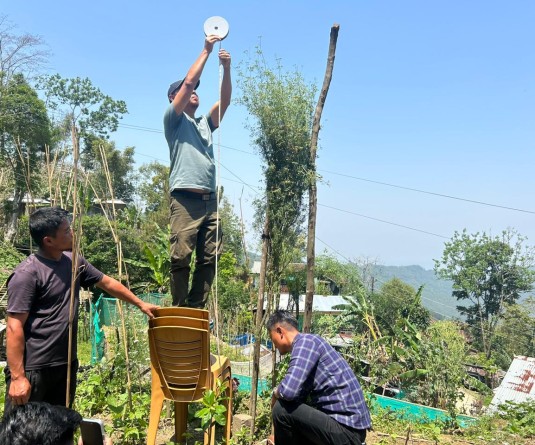
Morung Express News
Dimapur | August 30
A workshop/consultative meet on Juvenile Justice System organized by Dimapur District Legal Services Authority (DDLSA) was held at DC’s Conference Hall Dimapur on Wednesday. Delivering the keynote address, Judicial Magistrate First Class/Juvenile Justice Board Chairman, W.V. Patton said that the objective of the juvenile justice system was to reform the child and emphasized on one-on-one interaction with the child. She told the stakeholders that ignorance of various Acts and laws were not an excuse for them and insisted that they should know the law.
District Child Protection Officer (DCPO), Dimapur, Pikato Muru who was one of the resource persons spoke about the Integrated Child Protection Scheme (ICPS) which is aimed at building a protective environment for children in difficult circumstances, as well as other vulnerable children, through government-civil society partnership. He informed about the two main target groups under ICPS namely, Children in need of care and protection and Children in conflict with law. Child Welfare Committee is the competent authority for disposing cases of children in need of care and protection while Juvenile Justice Board is the competent authority to deal with matters relating to children in conflict with law.
Pikato said that the State Child protection Society (SCPS) Nagaland was the implementing agency in the state for ICPS while District Child Protection Unit was set up in every district as a fundamental unit for implementation of ICPS. The DCPO also spoke about the After Care Programme designed for both children in need of care and protection and children in conflict with law.
“Those children, who, upon leaving institutional care have no family or any means of support, will benefit from this Programme. The purpose of the programme is to prepare children to sustain themselves during the transition from the institution to an independent life,” he added. Legal Aid Counsel cum Trainer (NSLSA), Esther K. Aye spoke about Juvenile Justice (Care and Protection of Children) Act 2015 and informed that the Act prescribes every police station to have a special room for children in conflict with law.
She informed that under the new Act, children in the age group of 16-18 could be tried as an adult. She also said that every police station was to have a designated Child Welfare Police Officer who after apprehending a child should as soon as possible inform the parent or guardian of such child. Such child in conflict with law should also be produced before the Juvenile Justice Board within 24 hours of apprehending the child, Esther added.
The resource person also informed that in no case, a child alleged to be in conflict with law should be placed in a police lockup or lodged in a jail. She said any police inquiring into the case should be in civilian dress and protect the identity and particulars of the child.
Esther also enlightened the gathering on the Protection of Children from Sexual Offences (POCSO) Act, 2012 and added that children below the age of 18 come under the Act. She revealed that Nagaland was yet to set up Victim Compensation Board which would fix the amount of compensation to child victims. At present, a child victim (sexual) is given Rs 1 lakh compensation in the State, she added. Panel Lawyer, DDLSA, Sentimenla spoke about Human Trafficking/Child Labour and stressed on the need for steps to be taken for prevention of child trafficking. She noted that poor and helpless children were the most exploited in the country.
Stakeholders’ perspective
Speaking on behalf of the stakeholders, Director, Prodigals Home, K. Ela expressed satisfaction for setting up child friendly corner in every police station in Dimapur. However, she pointed out the absence of child friendly court and appealed the competent authorities to initiate the process at the earliest. She said that the stakeholders, owing to lack of resources, were not able to help children as much as they needed to and pointed out instances where the inspecting authorities detect lack of proper facilities in many children homes.
“Government authorities come and inspect and point out lack of various facilities but how can be provide all facilities when there is no funding?” she queried. Ela maintained that many of the stakeholders were often insensitive while dealing with children and called for soul searching within themselves. She also called for the need to have Child Protection Policy in every school and other child centric centres. The programme was attended by a host of stakeholders running children homes in Dimapur and panel lawyers.




